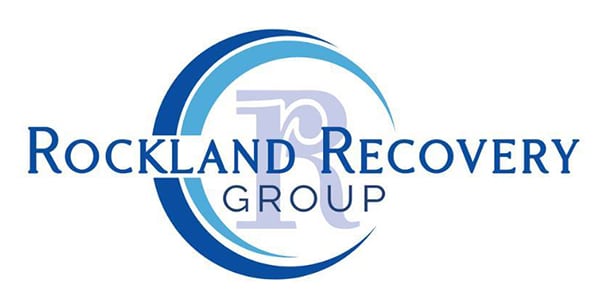One reason that someone may be apprehensive to enter addiction treatment is that they don’t know what to expect. For those who have never been in rehab, it’s uncharted territory full of unknowns. Having an understanding of what to expect during drug addiction treatment can help ease these uncertainties and prepare you for the important journey ahead.
Jump to Section
What Happens in Rehab?
Depending on the type and severity of the addiction, the first step in rehab might be a period of inpatient detox. This stage is critical for safely managing the withdrawal symptoms that occur when you stop using drugs or alcohol.
Someone who has never gone through withdrawal and detox in the past might not be aware of how serious and potentially dangerous this stage of recovery can be. Withdrawal symptoms can range from mild discomfort to severe, life-threatening conditions, depending on the substance and the duration of use.
Detox from drugs or alcohol should happen in a facility that is equipped with medical and mental health professionals to assist and provide care as needed. These professionals can monitor vital signs, manage withdrawal symptoms with medication if necessary, and offer emotional support during this challenging time.
This medical supervision ensures the detox process is as safe and comfortable as possible. It reduces the risk of complications and provides a solid foundation for the next stages of treatment.
Starting with an Assessment
Each person who seeks help with addiction has experienced their own journey in reaching this point. Factors like mental health, trauma, lifestyle, and a family history of addiction are just a few of the things that can determine what addiction treatment looks like for the individual. This is why everyone must receive a thorough intake assessment.
During an assessment, you’ll meet with members of the clinical staff. They will ask questions about your drug or alcohol use and your history of treatment. Additionally, they will discuss potential influences on your addictive behaviors. They may also assess your current physical health.
Inpatient Addiction Treatment
The two main formats for drug addiction treatment are inpatient and outpatient treatment programs. The type of program you enter will determine what to expect daily while receiving treatment.
Inpatient treatment is a residential addiction rehab program. For those who have gone through a medically supervised detox, inpatient treatment is often the next step.
During your stay in the rehab facility, you’ll have access to 24-hour medical and mental health care, plus support. These programs offer the highest level of structure, with a large segment of the day focused on recovery.
Individuals in inpatient rehab typically spend six to eight hours engaged in addiction treatment, including both individual and group therapies. You may also attend educational workshops and learn important relapse-prevention strategies. These are intensive programs, and you can expect your days to be highly structured and scheduled.
Most inpatient programs limit access to anyone outside of the treatment center, including family. Since you’ll be staying at the facility, you temporarily won’t be able to tend to work or other life obligations.
Outpatient Addiction Treatment
The typical day in drug rehab with outpatient treatment looks different for each person. Understanding drug rehab expectations can help set the right mindset. A full spectrum of treatment options and therapies is available under the outpatient umbrella, and they can be tailored to meet you where you are on your journey to recovery.
For those who require a higher level of support and structure, partial hospitalization and intensive outpatient programs offer full-day or partial-day addiction treatment with the flexibility to manage work and family life. With these types of programs, you can expect to spend four to six hours a day, several days a week, engaging in addiction treatment.
As you move closer to independence from addiction, the frequency and type of treatments will change. Depending on your needs, you may attend individual or group therapies at various points throughout the week. These programs offer the highest level of flexibility and control but require you to be accountable for your actions and commitment to your treatment plan.
Understanding Addiction Treatment Stages
The steps in addiction treatment typically progress from the highest level of structure and support to complete independence with weekly or occasional participation in continual treatment or group therapies.
Not every person will follow the same path. Some individuals may be able to skip the inpatient stage, while others will find they require an extended stay. Relapse is another factor to consider. Nobody enters rehab planning to relapse, but it’s something that does happen, and you might find that you have to move back to a more intensive program if it happens to you.
Acceptance and Acknowledgement of Addiction
Recovering from addiction always begins with the acknowledgment and acceptance that there is a problem. This could be something you come to on your own terms, through an intervention, or from difficult conversations with a loved one.
Seeking Help and Researching Addiction Treatment Centers
Once you acknowledge the need for treatment, the next step is determining where to seek help. The Substance Abuse and Mental Health Services Administration offers an online provider directory to assist in finding addiction treatment providers in your local area.
Detox
This is the process of clearing the body of drugs or alcohol and allowing the body to begin to adapt. Detox is often described as the most difficult part of addiction recovery and should take place in an addiction treatment facility or hospital setting.
Inpatient Treatment
After detox, this is the first stage for many battling addiction. These are intensive residential programs. The length of treatment may vary but typically ranges from seven to thirty days.
Partial Hospitalization Programs (PHP)
PHP offers the next highest level of structure and support for those who don’t require inpatient treatment. This option, frequently called a day program, may require a time commitment of six hours a day, up to five days a week.
Intensive Outpatient Programs (IOP)
These partial-day programs are similar to PHP, with the main difference being the time commitment. IOP typically requires patients to commit to treatment for three hours a day, several days a week.
Sober Living
For those who are working through addiction treatment but don’t have a safe or supportive living environment, sober living is an option. This transitional residence program offers structure, accountability, and safety.
Aftercare Planning
Aftercare planning is essential as a person becomes more independent and less reliant on frequent therapy. Individuals work with their addiction counselors to develop a plan for ongoing support and relapse management. This may include attendance in group therapy, weekly or monthly meetings with an addiction counselor, mental health care, and connecting individuals with medical care providers.
Alumni Programs
Those who have completed addiction recovery still need a foundation of support and encouragement. Alumni programs provide this. They form a lasting connection between addiction recovery staff and those who have completed treatment. These programs are also great for community and peer support and often feature special group events throughout the year.
Finding the Drug Addiction Treatment You Need
If you have questions about drug addiction treatment and its components, we encourage you to contact Rockland Recovery for answers. We can help you understand the process, insurance coverage, and more. Call us at 888-299-4833 today.




